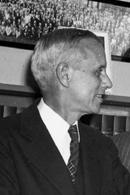A Quote by Alfie Kohn
In some suburban schools, the curriculum is chock-full of rigorous A.P. courses and the parking lot glitters with pricey SUVs, but one doesn't have to look hard to find students who are starving themselves, cutting themselves, or medicating themselves, as well students who are taking out their frustrations on those who sit lower on the social food chain.
Related Quotes
I was inspired by what students have done in some schools organizing walkouts protesting the lack of funding and that sort of thing. There are opportunities for students to engage in those types of protests - taking to the streets - but there is also writing poetry, writing music, beginning to express themselves, holding forums, educating each other, the whole range.
What is wrong with encouraging students to put "how well they're doing" ahead of "what they're doing." An impressive and growing body of research suggests that this emphasis (1) undermines students' interest in learning, (2) makes failure seem overwhelming, (3) leads students to avoid challenging themselves, (4) reduces the quality of learning, and (5) invites students to think about how smart they are instead of how hard they tried.
A great teacher is not simply one who imparts knowledge to his students, but one who awakens their interest in it and makes them eager to pursue it for themselves. He is a spark plug, not a fuel pipe. The reason colleges exist is to bring students into contact with contagious personalities, for otherwise they might as well be correspondance schools.
A psychologist once asked a group of college students to jot down, in thirty seconds, the initials of the people they disliked. Some of the students taking the test could think of only one person. Others listed as many as fourteen. The interesting fact that came out of this bit of research was this: Those who disliked the largest number were themselves the most widely disliked. When we find ourselves continually disliking others, we ought to bring ourselves up short and ask ourselves the question: "What is wrong with me."
In colleges, there are no gender separations in courses of study, and students can freely choose their majors. There are no male and female math classes. But women generally choose college courses that pay less in the labor market. Those are the choices that women themselves make. Those choices contribute to the pay gap.
Let's be clear about what Common Core is. It spells out what students should know at the end of each grade. The goal is to ensure that our students are sound in math and literacy and that our schools have some basic consistency nationwide. But the standards do not dictate a national curriculum, and teachers are not told how or what to teach.
As a general rule, those who are dissatisfied with themselves will seek to go out of themselves into an ideal world. Persons in strong health and spirits, who take plenty of air and exercise, who are "in favor with, their stars," and have a thorough relish of the good things of this life, seldom devote themselves in despair to religion or the muses. Sedentary, nervous, hypochondriacal people, on the contrary, are forced, for want of an appetite for the real and substantial, to look out for a more airy food and speculative comforts.


































